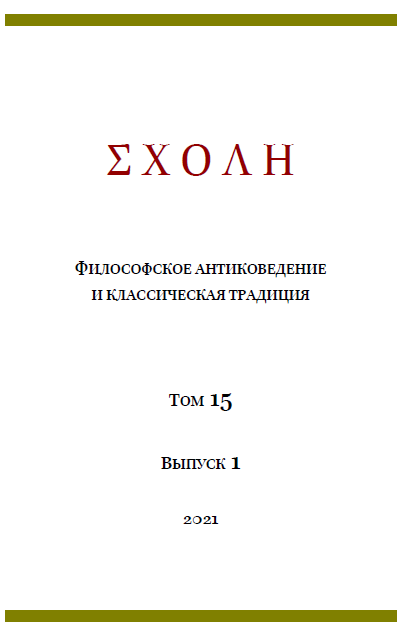PLAYING AND LAUGHING GODS OF PLATO’S DIALOGUES IN THE COMMENTARIES OF PROCLUS
PLAYING AND LAUGHING GODS OF PLATO’S DIALOGUES IN THE COMMENTARIES OF PROCLUS
Author(s): Dmitry Kurdybaylo, Inga KurdybayloSubject(s): Metaphysics, Ancient World, Ancient Philosphy
Published by: Новосибирский государственный университет
Keywords: Plato; Proclus Lycaeus; Neoplatonic commentary; providence; metaphysics; game; laughter; humour;
Summary/Abstract: “Socrates’ irony” is a well-known topos. Dialogues of Plato contain different modes of humour, from mild self-irony to quite sarcastic tones. Plato’s gods are ‘playful,’ they treat people as those were ‘playthings.’ The best way of mortals’ life is to play also, spending their time in “sacrificing, singing, and dancing.” However, Neoplatonic commentaries to Plato tend to avoid explicit laughter and any direct mode of humour. Proclus, one of the most fruitful commentators of Plato, seems to disregard anything ludicrous in Plato’s writing. The places, where Plato speaks about laughter or playing games, are explained by Proclus as signs to some kind of divine activity towards the material realm. Even smile and laughter of particular humans are interpreted in the same way as symbols (synthēmata) of gods’ providence. What Proclus discusses in minor details, is the dialectics of gods’ procession into the sensible world, causing substantiation of the universe, and retention of the internal bonds that keep it eternal and unchangeable. Similarly, temporary particular beings also benefit from divine providence, which fortifies their vital capabilities. In general, these forms of providence are depicted by “the undying laughter” of gods. In spite of this approach seeming to be superfluously ‘scholastic’ and therefore losing the dramatic perspective of Plato’s writings, we suggest that Proclean interpretation may assume laughter to be related to some theurgic practice. Therefore, reading and interpretation the game- and laughter-related passages of Plato could have been considered themself a kind of theurgic “sacred play.”
Journal: ΣΧΟΛΗ. Философское антиковедение и классическая традиция
- Issue Year: XV/2021
- Issue No: 1
- Page Range: 53-63
- Page Count: 11
- Language: English

